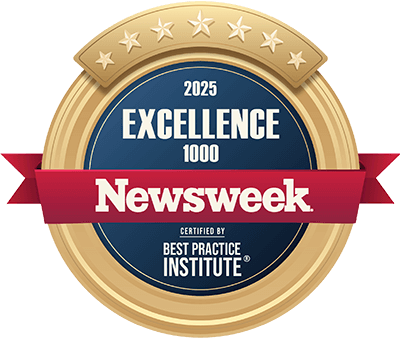Building a Content Management System (CMS)
Launch Plan, Skills Needed, Costs
With experience in CMS development since 2011, ScienceSoft knows how to build a CMS that would improve the efficiency of content management by up to 60%.
Building a Content Management System (CMS): Summary
Content management system development is required when a company needs software to conveniently manage its digital content. Such content may include documents, digital media assets (e.g., photos, audio and video files), and web content.
- Building time: 2-6 months.
- Required team: a project manager, a business analyst, a UX/UI designer, front-end and back-end developers, QA and DevOps engineers.
- Costs: $20,000–$400,000, depending on complexity. Use our online cost calculator to get a custom quote.
How to build a CMS in 8 steps
- Create a CMS concept.
- Plan the CMS development.
- Design workflows and prototypes.
- Kick off the CMS development (platform-based or custom).
- Conduct testing and QA of CMS.
- Perform CMS data migration.
- Conduct user training and launch the CMS.
- Provide after-launch CMS support.
This is the fullest development roadmap, though we see in our CMS development projects that some steps may be skipped.
ScienceSoft offers cost-effective implementation of custom and platform-based content management solutions that help organizations streamline the creation, publishing, and updating of diverse corporate content.
How to Make a CMS
CMS development projects differ based on the project scope and solution specifics, but the key steps to build a content management system are universal. Relying on experience in CMS development since 2011, ScienceSoft’s project managers share a sample project plan and useful tips below.
1.
Business analysis and CMS conceptualization
-
At the very first stage of the project, software consultants analyze and document the following aspects:
- The organization’s content management needs (e.g., quicker content creation and publishing, optimized content storage, or adding support for new content types).
- The company’s data architecture, content management processes, and content types.
- The target users of the CMS (content authors, editors, marketers, etc.) and their role-specific needs. ScienceSoft’s consultants usually interview CMS business users directly to grasp their challenges and needs and ensure that no critical requirements go unnoticed.
- Requirements for CMS features to support specific business operations (e.g., product catalog management for ecommerce, secure document processing for finance).
At ScienceSoft, we also analyze and outline regulatory requirements relevant to the CMS (e.g., HIPAA for healthcare, GDPR for CMSs that operate personal data of the EU consumers). This way, we enable compliant CMS design from day one.
Based on the obtained insights, software consultants create a functional specification for the CMS, and project managers map a high-level project scope.
2.
CMS technical design
During this stage, development teams move from a high-level CMS concept to the final solution design. The key technical design activities include:
- Designing a content governance strategy. This means mapping out content management workflows (creation, approval, publishing, etc.) for various content types, file naming conventions, and user roles and permissions. A good governance strategy should also formalize content life cycle workflows, such as the frequency of content updates and data retention and deletion policies.
- Designing the business logic for the CMS. Reusing logic components across multiple features, where applicable, will help you cut design and development efforts. It also makes sense to explore feature reuse opportunities across your existing systems. For example, if you need an ecommerce CMS, product description and content recommendation features will likely be available in your ecommerce platform, so you can leverage them via a CMS-ecommerce integration. Check ScienceSoft’s Pimcore-Magento project to get an idea of how this approach may work.
- Deciding on the most feasible approach to CMS implementation (customizing a platform-based CMS or developing a fully proprietary CMS from scratch).
- (For platform-based CMSs) Selecting the optimal CMS platform (Pimcore, WordPress, SharePoint, etc.) with the company’s needs in mind. Explore ScienceSoft’s recent CMS consulting project to learn what criteria can be used to compare market-available CMSs.
- (For custom CMSs) Designing the CMS architecture and composing a cost-effective development tech stack. Architects at ScienceSoft use secure open-source frameworks, libraries, and pre-built APIs where possible to reduce development efforts without tradeoffs to CMS quality. If you are developing a CMS product, building your own framework can be worth investing in to compete on high solution scalability and seamless user experiences. Check how we did that for Enonic CMS.
- Planning the optimal ways to introduce advanced capabilities, such as multi-lingual content translation or AI-powered content personalization.
- Planning CMS integrations with the necessary corporate software (a PIM system, CRM, intranet, e-selling platforms, marketing automation software, etc.).
After the CMS design is finalized, project managers create a detailed development project plan, which covers a time-framed work breakdown structure (WBS), a team composition, project KPIs, and time and cost estimates. PMs at ScienceSoft also create a risk mitigation strategy to quickly address any arising issues that could result in delays and extra expenses.
Market-available CMSs offer abundant content management capabilities, which will be enough for most businesses. However, pre-built CMSs may struggle to accommodate highly specific workflows, strict security requirements, or integrations with legacy systems. If there’s no suitable CMS to meet these needs, it makes sense to go for custom development. A cost-effective approach in some cases could be to launch a ready-made CMS and upgrade it with custom features.
3.
UX/UI design and content architecting
UX/UI designers create user personas based on the planned roles, map out straightforward user journeys, and create intuitive layouts for the CMS. UX teams also design an information architecture that ensures CMS users can easily search for content. ScienceSoft’s experts recommend categorizing and indexing all content, applying unified file labeling, and tagging the metadata to speed up content search and data retrieval.
Consider building a CMS prototype to quickly test the CMS usability, collect user feedback, and refine the design. This will help you prevent costly changes at later project stages. Prototyping is particularly valuable for checking the technical viability of CMSs that deal with versatile media content or span innovative content intelligence features. For example, in one of our projects that involved connecting a legal CMS with OCR tools, we started with a prototype to prove the accuracy of automated workflows across sensitive legal documents.
4.
CMS development
The activities occurring at this stage depend on the chosen CMS implementation approach:
- Custom CMS development: Developers code the back end of the CMS (including APIs), create role-specific user interfaces, and set up scalable data and content storage.
- Platform-based CMS implementation: Developers implement the chosen CMS, customize its themes, plugins, and modules to match the company’s requirements, and develop custom features to extend the CMS functionality if needed.
At this stage, back-end engineers also integrate the CMS with the required internal and third-party software using APIs and connectors.
Throughout development, project managers track and report the progress to stakeholders and adjust the team’s tasks to address feasible change requests.
Adopting iterative Agile methodologies and implementing CI/CD pipelines for automated coding, testing, integration, and deployment fosters quicker CMS development. By applying DevOps best practices, our teams can introduce the first working version of a custom CMS within 2–3 months.
5.
CMS quality assurance
Rigorous testing is a must to ensure the accuracy, security, and smooth performance of the CMS. At ScienceSoft, we usually run QA activities in parallel with development to spot and fix the issues quickly.
QA teams are responsible for the following:
- Creating a CMS test plan, test scenarios, and test cases for various testing types (functional, performance, usability, security testing).
- Deciding on the testing approach (manual or automated) and selecting suitable testing tools. Test automation is a good choice for repetitive, high-volume QA tasks like performance, security, and regression testing.
- (For automation testing) Writing test scripts.
- Setting up the test environment and testing tools.
- Conducting the required QA activities.
QA engineers at ScienceSoft deliver detailed test reports (see a report example) describing the testing progress, defect validation results, and invested efforts. After the developers have fixed the revealed issues, the QA team repeats the tests to ensure there are no unresolved defects left.
6.
Data migration
During this stage, engineers extract content, metadata, and user information from the old CMS, transform the data to match the new CMS format, and transfer it to the new system. Cleaning the data before importing is a must to prevent erroneous, duplicated, and outdated data pieces from polluting the new CMS. In one of ScienceSoft’s CMS projects, we had to build a custom data import console to retain the documents’ specific taxonomy and search attributes during migration.
ScienceSoft also recommends testing the transferred data and content management features for accuracy and integrity to fix any issues before the new CMS goes live. Migrating data in small fractions and outside working hours lets us swiftly roll back the changes if something goes wrong without affecting the client’s content management workflows.
7.
CMS rollout
At this stage, development teams configure the CMS infrastructure, set up data backup and recovery mechanisms, and deploy the solution to production.
- Organizing user acceptance testing (UAT) prior to a CMS launch will let you confirm that the solution fully meets business requirements, functions as expected, and provides a smooth user experience. It helps identify and fix CMS logic and usability issues before deployment, minimizing the risk of post-launch problems.
- Conducting training sessions for CMS users will ensure your content management teams can efficiently create, publish, and update content in compliance with content governance guidelines. ScienceSoft also draws comprehensive tutorials for the developed CMS systems to empower content managers to self-learn and resolve simple issues without involving IT teams.
8.
After-launch CMS support and maintenance
Once your CMS goes live, you need to organize its support and maintenance. Here are some of ScienceSoft’s practices to ensure smooth operation and long-term value of content management systems:
- Continuous monitoring of CMS performance (latency, throughput, spare capacity, etc.).
- CMS performance optimization (e.g., optimizing database queries, caching, and code to speed up page load and minimize server uptime).
- L1–L3 support to quickly handle user, application, and infrastructure issues.
- Regular security and compliance assessments to fix any emerging vulnerabilities and bridge compliance gaps.
- Upgrading the CMS according to changing business needs (e.g., developing custom features or implementing new plugins and add-ons).
CMS Building Costs
CMS implementation costs depend on multiple factors such as:
|
|
Sample CMS implementation costs
From ScienceSoft’s experience, developing a content management system may cost around $20,000–$400,000, depending on software complexity.
$20,000 - $50,000
For a basic CMS solution with content authoring tools, customizable templates, alerts and notifications (e.g., about content publishing, modification), reporting and analytics (e.g., content usage, user behavior).
$70,000 - $100,000
For an advanced CMS with multiple custom features (e.g., non-linear multistep workflows for content approval) and third-party integrations (e.g., with ERP, CRM, PIM, ecommerce software, marketing automation software).
$150,000 - $400,000
For a complex enterprise CMS with custom features like AI-driven content personalization, multisite and multilanguage support, access to content management functionality on mobile devices, and more.
Why Choose ScienceSoft to Create a Content Management System
- 36 years in custom software development.
- 14 years in CMS development.
- Business analysts with 5-9 years of experience in CMS.
- Expertise in 30+ industries, including healthcare, BFSI, manufacturing, oil and gas, retail, and many others.
Our awards, certifications, and partnerships
Typical Roles on Our CMS Building Team
ScienceSoft's CMS development team usually includes:
Project manager
- Defining the scope, budget, timeframes, milestones, and target KPIs of a CMS development project.
- Managing resources for the project.
- Facilitating and coordinating communication between all team members.
- Supervising the project activities.
- Tracking the project milestones and deliverables.
Business analyst
- Investigating the content management needs, goals, and target users.
- Suggesting the most relevant CMS features.
- Mapping CMS features to technical requirements.
- Organizing, specifying and documenting CMS requirements, including the description of CMS modules, information architecture, user roles, integrations, etc.
UX/UI designer
- Performing UX research.
- Creating user journey maps and designing user interactions with a CMS.
- Building CMS prototypes.
- Conducting CMS usability testing.
Back-end developer
- Choosing a suitable platform or a tech stack for a CMS.
- Developing and deploying a CMS solution.
- Integrating the solution with a CRM, intranet, or other tools.
- Developing custom CMS add-ins or plugins for a platform-based CMS.
Front-end developer
- Developing the UI components of a CMS.
- Optimizing the CMS front-end performance to improve user experience.
Test engineer
- Designing a test plan for a CMS solution.
- Selecting appropriate testing tools.
- Designing, executing, and maintaining test cases to ensure CMS operability and consistency with the requirements specification.
- Reporting the defects to developers and validating the fixes.
DevOps engineer
- Automating the CMS development process by introducing a CI/CD pipeline.
- Monitoring CMS availability, performance, and security.
Sourcing Models for CMS Development
Benefits of Building CMS with ScienceSoft
Guaranteed CMS quality
Due to our quality-centered approach: regular code reviews, integrated APM (application performance management), systematic QA with optimal test coverage, including unit testing, automated API and UI testing.
Cost-efficient CMS development
To reduce CMS development costs, we use proven ready-made and open-source components instead of developing custom tools or using third-party costly tools. Also, we ensure the optimal use of cloud services.
Lower risks
To minimize implementation risks, we offer all-around consultancy at each stage of CMS implementation, from architecture and UX/UI design to the solution’s launch, and follow the iterative development approach.
Choose Your CMS Service Option
ScienceSoft leverages 36 years of experience in software development to create feature-rich and cost-effective CMS solutions.

About ScienceSoft
ScienceSoft is a global IT consulting and software development company headquartered in McKinney, Texas. We advise on and build custom and platform-based CMS solutions with a rich feature set to ensure prompt and cost-effective web content management. Achieving project goals in spite of time and budget constraints, as well as changing requirements, is ScienceSoft's top priority. You set goals, we drive the project to fulfill them.







